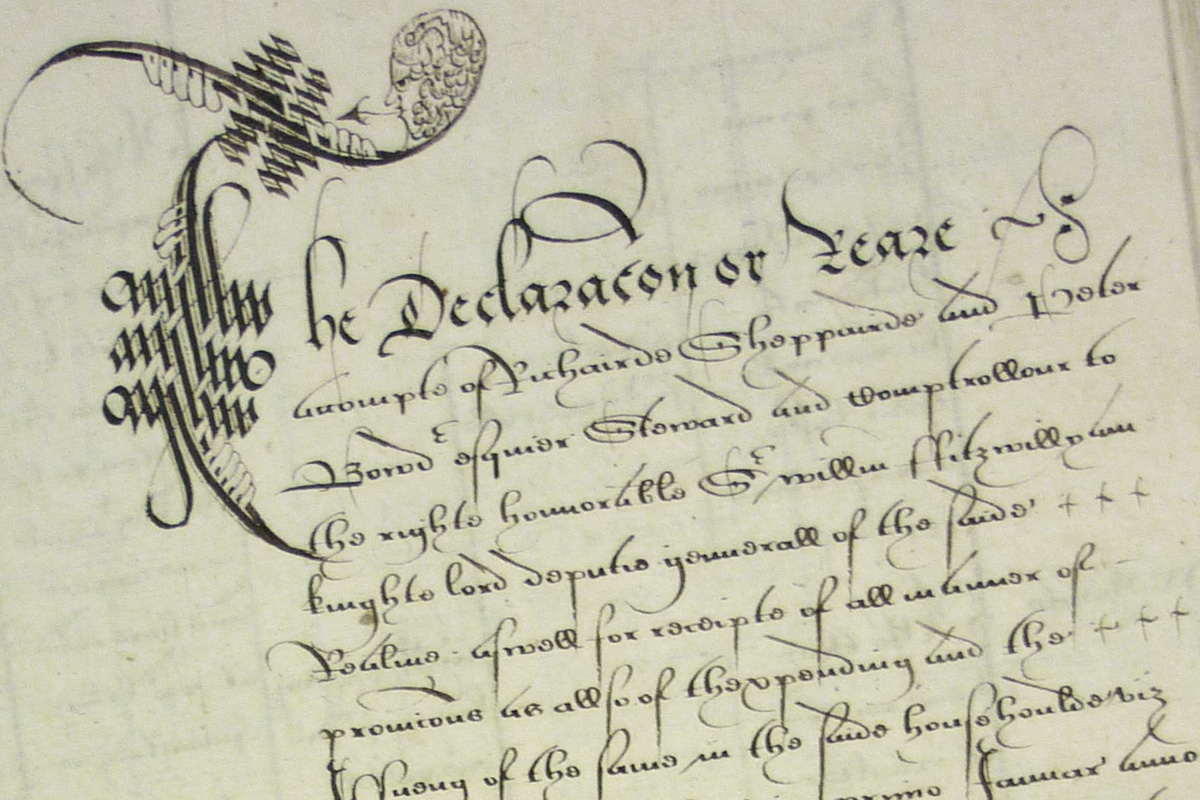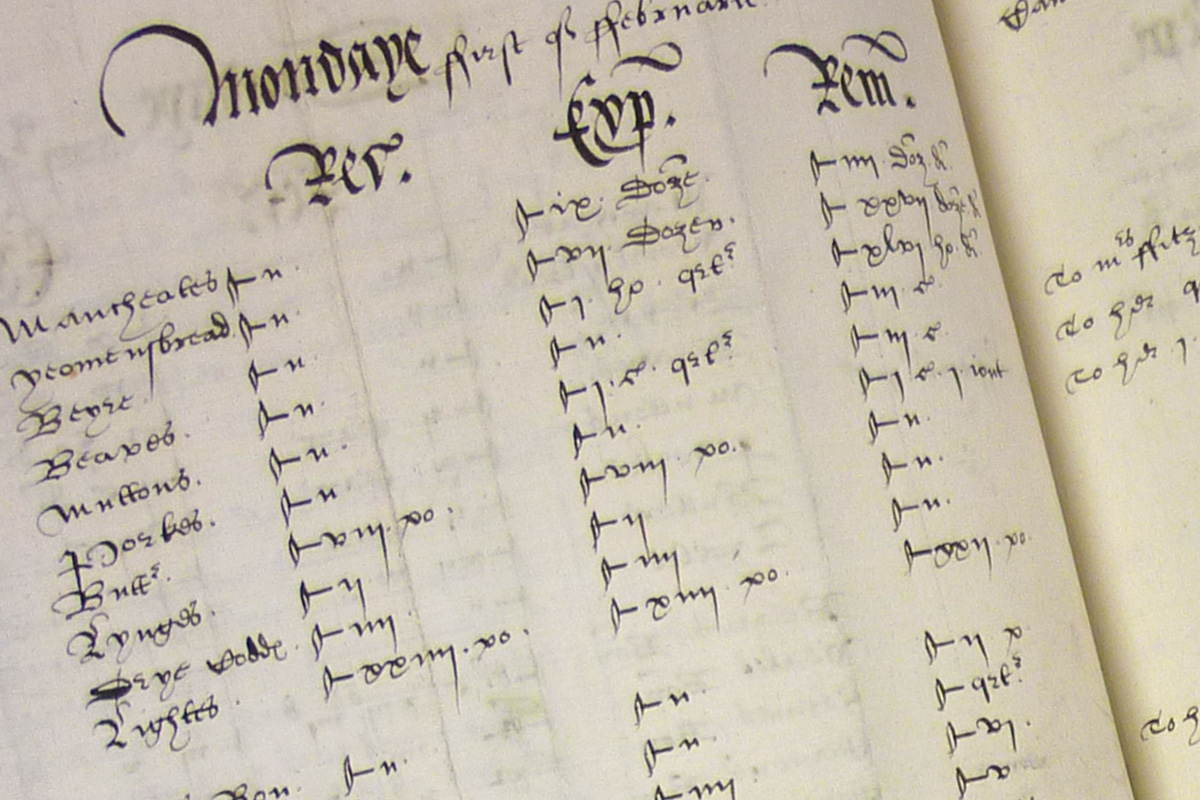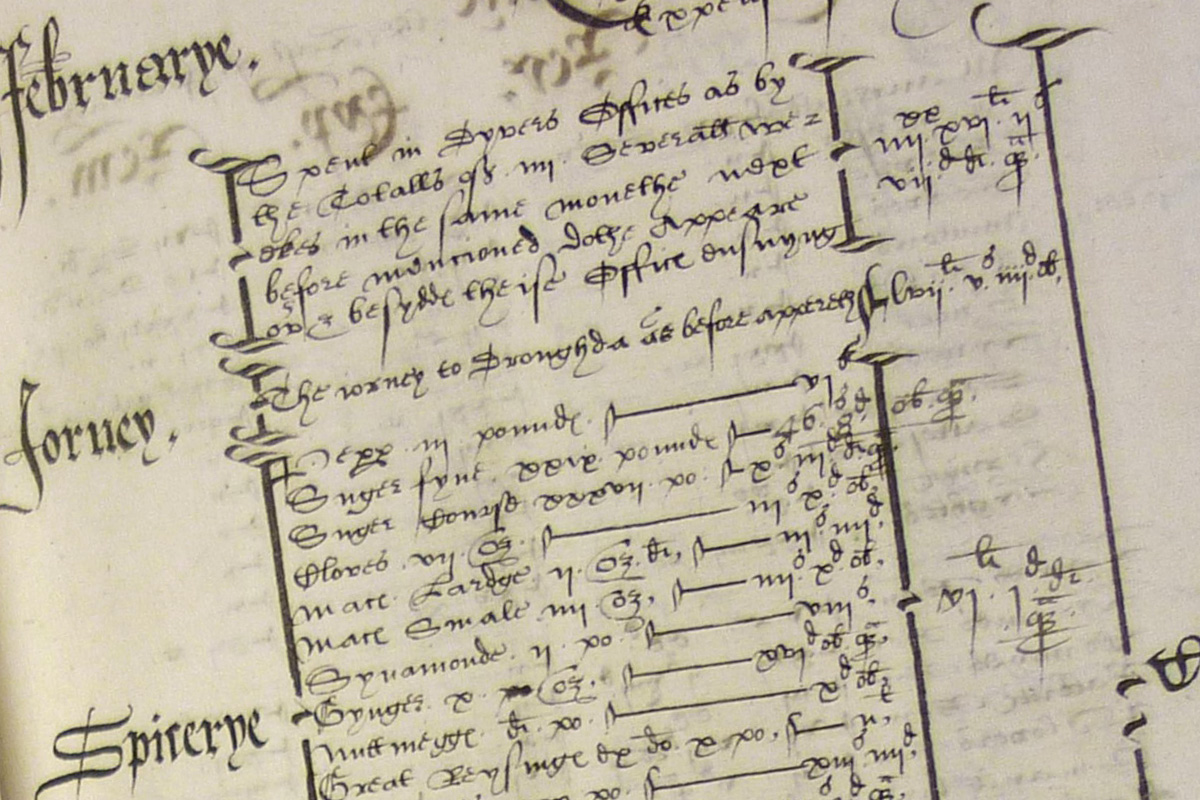Here, diet is approached at the level of individual household and institution, through the analysis of household accounts.
Survival of these accounts is sporadic, but those identified include the accounts of religious institutions, private household accounts, domestic records relating to elite households and army provisioning records for the Elizabethan soldiery in Ireland.
Together, such accounts can open a valuable window on diet. They illuminate a wide range of consumption types (food; objects; fuel; labour). They allow the examination of the changing components of diet over time and throughout different seasons. They shed light on provisioning, domestic production (brewing; baking; gardening and dairying etc.); and importantly, varying levels of local food availability. They also reveal social aspects of consumption including distinctions between elite and lower-class consumption (servants and labourers), ritual patterns of eating and drinking and the gift economy, as well as the material culture of food preparation and consumption, with regards to objects and space.
This work package will collate, analyse and make accessible the quantitative and qualitative data in surviving sixteenth and seventeenth-century household/institutional accounts pertaining to Ireland.




